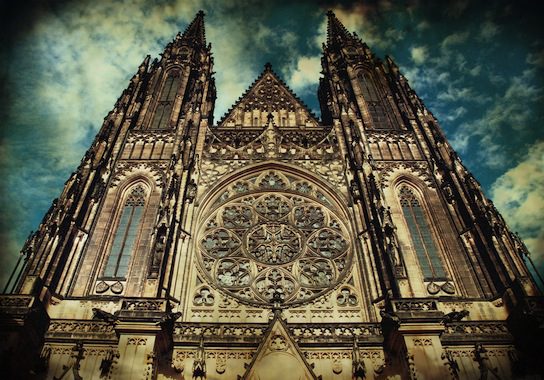Orthodoxy, Catholicism, and the State

The often-provocative Catholic blogger Artur Rosman contends that if conservatism in religion were enough to turn the tide against secularism, Orthodox Russia would be in much better religious shape these days:
Can you think of a more theologically conservative group than Orthodox Christians? They can rightfully claim the most ancient liturgies, which run for hours and require plenty of aerobic exercise from babushkas.
If the conservative church thesis were true, then could you think of a better scenario than the caesaropapist arrangement Orthodoxy enjoys under Putin? The connection between church and state is so close that Patriarch Kiril has ecclesiological problems because of the president’s policies and vice-versa.
Alas, says Rosman, though huge numbers of Russians (75 percent) claim to be Orthodox, only a tiny number of them (four percent) actually go to church. Of those who claim Orthodoxy as their religion, 30 percent don’t even believe in God. This, according to the study Rosman cites.
Rosman’s conclusion for American Catholics is peculiar. He says faithful Catholics should be of good cheer, despite the darkening prospects for Christians in America:
I also wish the American hierarchy would look happier when considering the coming persecution, if it’s really coming.
They should welcome something like it rather than ratcheting up their sad attempts to look like good mainline Americans and indulging in medieval fairy tales of a harmonious Christendom.
Too long they’ve peddled to us what H. Richard Niebuhr (the real theological brains in the family) called in The Kingdom of God in America, “A God without wrath brought men without sin into a kingdom without judgment through the ministrations of a Christ without a cross.”
The Murray Project is dead.
Well. I can agree with Rosman that the “Murray Project” — broadly speaking, the idea that one can be both a good Catholic and a good American — is dead, or at least on its last legs. And I agree with them that this might well be good for the faith, in the sense that it will separate out the people for whom the faith really matters from the casual Catholics and other Christians. What is coming will be clarifying for us all, but I’m not sure we should be altogether pleased by it.
That said, I don’t believe that Russia is a good example from which to draw this conclusion. The Russian Orthodox Church endured 70 years or more of intense persecution, probably the worst in all of Christian history. It is a miracle that Christianity survived at all in Russia. I do not like the entwining of Church and State in Russia today, but I doubt very much that that has much to do with the woebegone state of the Christian belief there. What nation, and which peoples, could have suffered something so grotesque and unremitting, and have bounced back so quickly?
Did persecution strengthen the Catholic Church in France? I can’t see that it did. There has been no meaningful religious persecution in England in at least two centuries, but the faith — Protestant and Catholic alike — is in very serious trouble there. Something else is going on. Whatever it is, I share Rosman’s wish that the Catholic bishops and other prominent Christian leaders would stop drinking the Kool-Aid and start speaking out, and preparing their people for long-term endurance.
Subscribe for as little as $5/mo to start commenting on Rod’s blog.